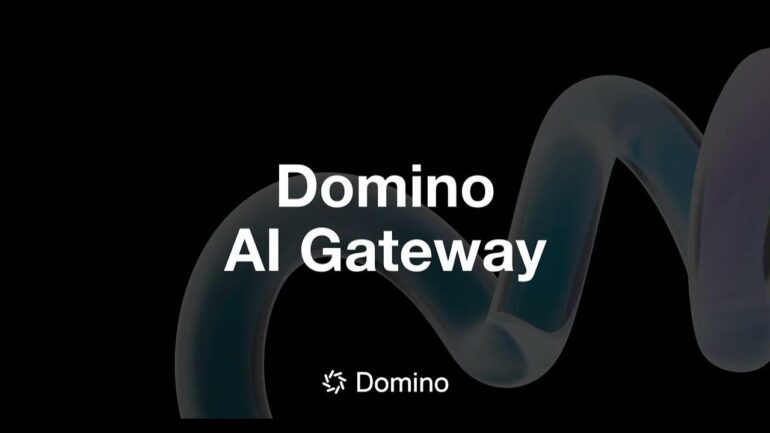- Domino Data Lab introduces Domino AI Gateway, enhancing security and access management for Large Language Models (LLMs) from top providers like OpenAI.
- AI Gateway integrates with MLflow Deployments Server, offering robust governance and security features for LLM usage.
- Users benefit from MLflow Deployments Server’s API, allowing seamless configuration of prompts directed to different LLMs.
- Enterprises can govern LLM access, manage user permissions, and monitor associated costs throughout GenAI application development.
- Domino also announces Pinecone Vector Database integration to accelerate Responsible AI Governance (RAG) application development.
- The Pinecone data connector ensures easy access to vectorized content within the Domino workspace notebook, bolstering workflow efficiency.
- With centralized credential management, secure storage, and audit trails, Domino extends its AI governance framework to RAG-based generative AI applications.
Main AI News:
Domino Data Lab introduces its latest innovation, the Domino AI Gateway, revolutionizing the management of access to cutting-edge Large Language Models (LLMs) from renowned providers such as OpenAI and Anthropic. This groundbreaking solution enhances security protocols by safeguarding LLM API keys within the organization’s infrastructure.
The Domino AI Gateway not only ensures secure access to LLMs but also facilitates responsible usage across teams. By integrating seamlessly with Domino’s platform, it offers enterprise-grade security features, guaranteeing that only authorized personnel from commercial providers can interact with model endpoints.
Powered by the robust foundation of MLflow Deployments Server, the AI Gateway establishes itself as a cornerstone for governance and security in AI initiatives. Notably, Domino goes a step further by incorporating LLM usage metadata into its audit trail capability, enhancing compliance with stringent enterprise security and audit policies.
Furthermore, Domino empowers users with the flexibility of MLflow Deployments Server’s API, simplifying the process of directing prompts to different LLMs. This agility enables enterprises to adapt swiftly to evolving requirements, effortlessly configuring new MLflow LLM endpoints as needed.
With the Domino AI Gateway, organizations can:
- Govern LLM access seamlessly throughout the GenAI application lifecycle.
- Efficiently manage user access and monitor LLM queries and associated costs.
- Foster a culture of responsible experimentation in GenAI application development using premier SaaS LLM services.
- Regain autonomy over LLM providers, effortlessly mixing and matching models to align with specific project requirements.
In parallel with this groundbreaking release, Domino announces the integration of the Domino Pinecone Vector Database connection, designed to accelerate RAG (Responsible AI Governance) application development.
This data connector simplifies access to vectorized content, ensuring the knowledge repository remains current with minimal manual intervention. Enabling direct connectivity from the Domino workspace notebook enhances workflow efficiency and streamlines development processes.
Aligned with Domino’s commitment to AI governance, the Pinecone data source offers robust security features, including centralized credential management, secure storage, audit trails, and data lineage tracking. These capabilities extend Domino’s governance framework to encompass RAG-based generative AI applications effectively.
Pinecone stands as the inaugural vector database supported by Domino’s Data Sources, with support for additional databases, including Qdrant, which are slated for future updates.
Conclusion:
Domino Data Lab’s unveiling of the AI Gateway and Pinecone integration signifies a significant leap forward in AI development and governance. By enhancing security, access management, and workflow efficiency, Domino empowers enterprises to harness the full potential of Large Language Models while ensuring responsible and compliant AI application development. This innovation sets a new standard for AI tools in the market, promising greater efficiency, security, and governance for businesses navigating the complexities of AI-driven initiatives.

